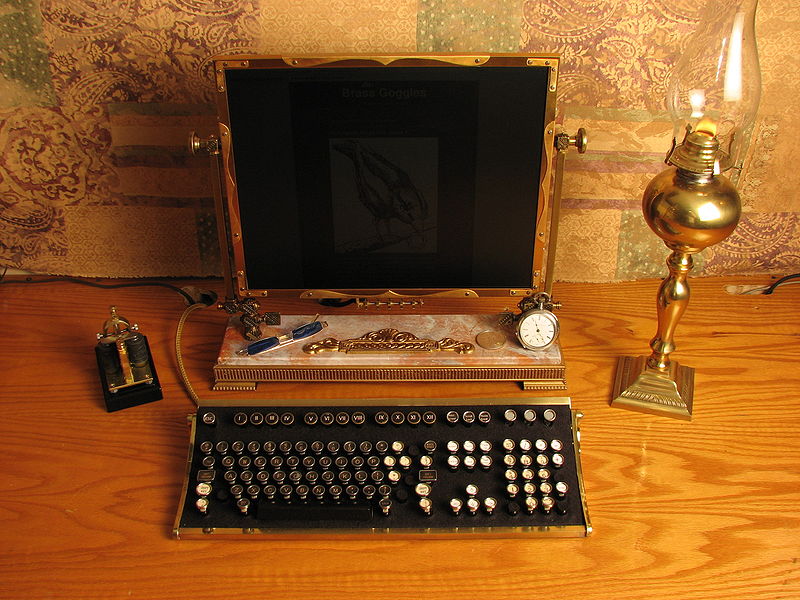User:Inge Hoonte/aswemaythink
Vannevar Bush, As We May Think
Makes me think of Steampunk which is a reversed form of As We May Think. It looks back and appropriates items, style, clothing, furniture with a sense of nostalgia. Instead of imagined and developed in 1870, it is a nostalgic look back on aesthetics from now to then.

Notes on the text:
- Situated right after WWII > Argues that all scholars can find their place in society again, except physicists. They left academics to make bombs, guns, etc.
- Knowledge gets lost in the mass of the inconsequential (also, finding out something has existed for years, a movement, platform, whatever, without you knowing it... it's all out there and you can read about it and often you just don't)
- 'The summation of human experience is being expanded at a prodigious rate, and the means we use for threading through the consequent maze to the momentarily important item is the same as was used in the days of square-rigged ships.'
- Human operator
- The world has arrived at an age of cheap complex devices of great reliability; and something is bound to come of it.
- A record (of information, ed) should be able to be extended, stored and consulted.
- Nibbling at a library.
- Push pencil, tap typewriter. Digest. Correct. Set, print, distribute.
- Interesting how he says something is still "in embryo". It refers to present state, it exists and it implies it still has tons of developing to do, possibilities to grow.
- "the detailed affairs of millions of people doing complicated things"
- If manipulation of data is repetitive, it should be fed to a machine. Much more economical.
- Artificiality of systems of indexing. Info found by tracing it from subclass to subclass. Human mind operates by association (pandora! google! ads!). Memory is transitory.
- THE REAL HEART OF THE MATTER OF SELECTION
- Microfilm stored in a machine = the visual memory as understood by man. Scrolling through pages and being able to add one's own comments (=wiki)
